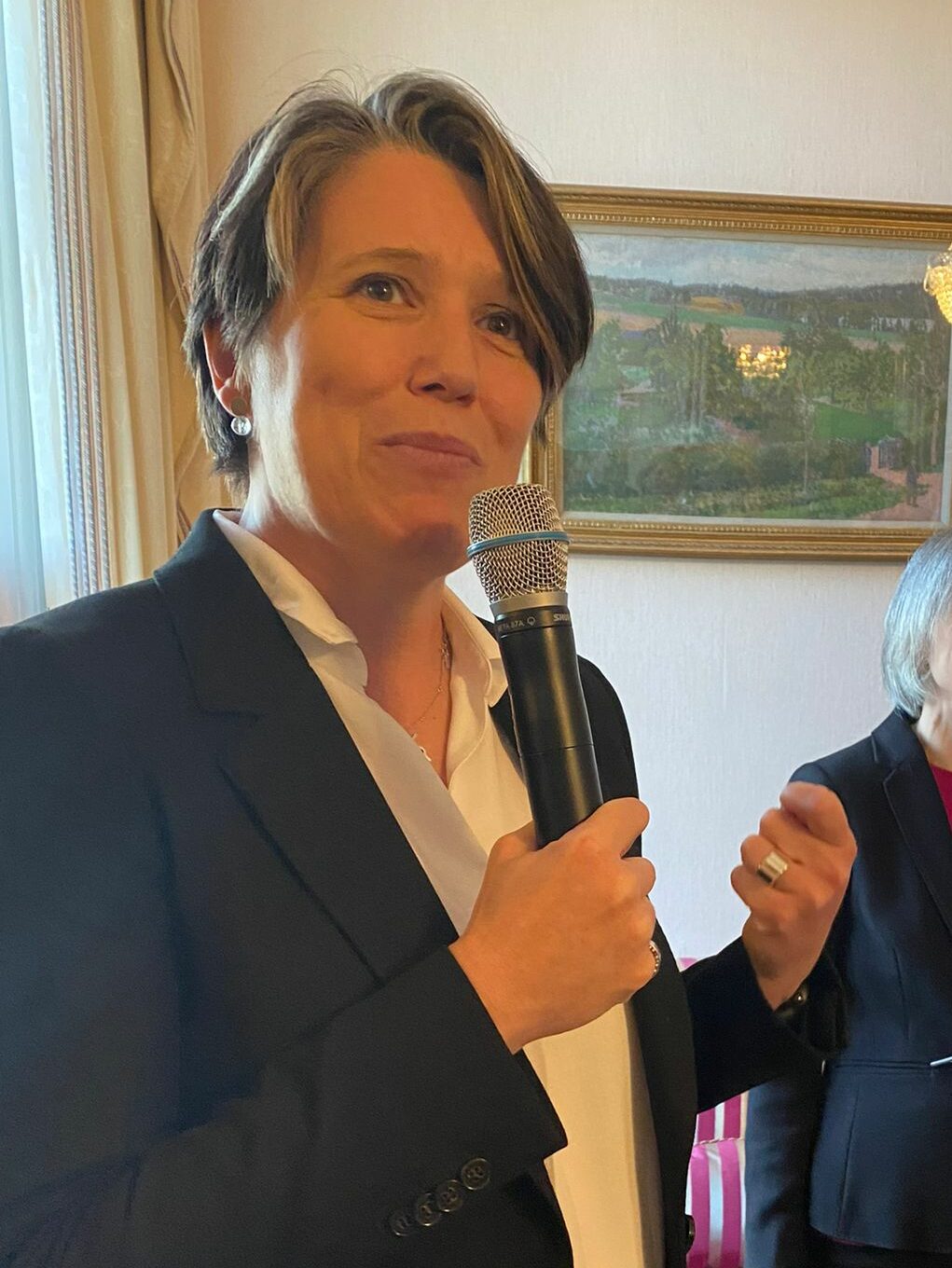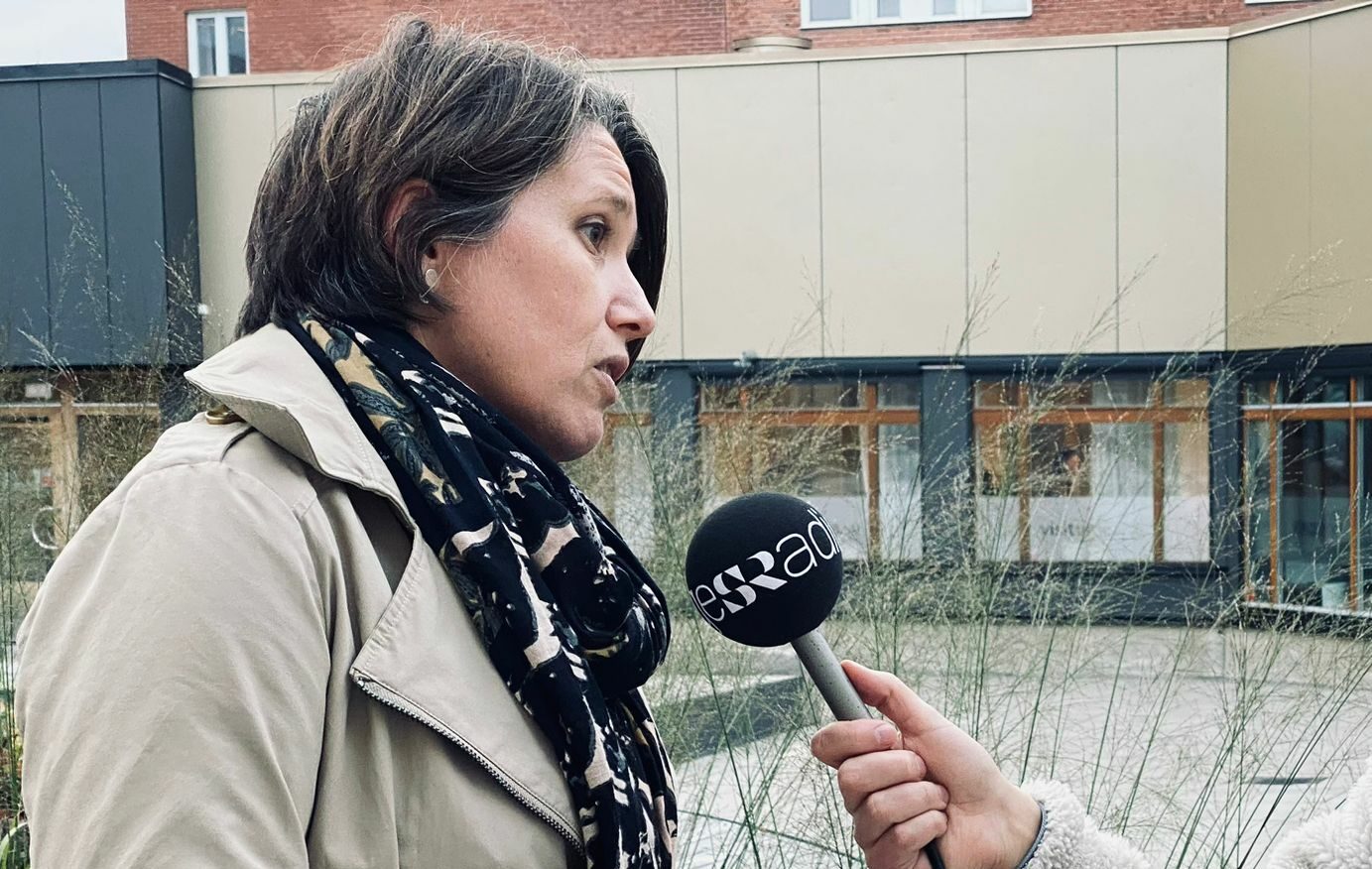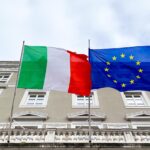Utblick Magazine sat down with Judith Gough, the British Ambassador to Sweden. Previously, she has worked as the Director for Eastern Europe and Central Asia for the Foreign & Commonwealth Office. Before taking on the new role in Sweden, she was the British Ambassador to Georgia and, most recently, Ukraine. Gough talked about her role as an Ambassador, the war in Ukraine and the stones it has set into motion.
Utblick Magazine: International politics is often described as an arena with little to no rules binding powerful states from doing whatever they want. In a world like this, diplomacy seems to be a crucial and needful profession. How do you view your work as an ambassador, and does working as an ambassador entail pressure because of this growing importance?
Judith Gough: It’s debatable as to whether the importance has grown. I’ve often thought it would be fabulous to be an ambassador in the 17th century or the 18th century, where you would get your credentials from the king, you would set sail from the UK on a boat, and arrive a couple of months later in Uppsala before Stockholm was the capital, and present your letters and then be completely responsible for your country’s relationship with the other country. Complete and utter autonomy. Over time, this has eroded, because ministers speak directly to each other, they WhatsApp each other, and they can talk directly. So the role of the ambassador has changed to a certain extent. It depends on the country, but where your ministers and leaders know each other very well, you do not have to make those connections. You’re perhaps focusing on connections elsewhere. It’s crucial in a world where conflict and tensions are increasing. Then, diplomacy has to be the way forward because if diplomacy fails, then we’re at war.
You said the diplomat’s role depends on the country. In what ways is it different to work as an ambassador in Sweden compared to, for instance, Ukraine, as we’re talking about two countries facing very different issues and have progressed differently in their democratic and economic development?
It’s very different. When I was in Ukraine, the country was in a state of conflict with Russia. The conflict didn’t start on the 24th of February 2022, that was the invasion. Working in an environment where you’re in conflict is a very different pace, very different threats, and as an embassy you often face threats. It’s different in a country where you don’t necessarily have the relationships between governments or the understanding in the UK in the same way that Britain feels it understands Sweden, for example. So the job as an ambassador there [in Ukraine] is much more intense. It’s to manage the relationship and explain each country to the other. And I also think in a country like Ukraine you are supporting a country in transition, which wants to become a more European democratic free market economy and closer to us. That requires one set of influence, skills, work, support and assistance. In contrast, Sweden and the UK are two countries in different stages of our development and progression. We’re not giving bilateral aid to Sweden. We’re not telling Sweden to reform. We’re working as partners on our shared values and principles to try and help and support countries like Ukraine. It’s a very different set of skills in some ways, basic principles are the same, but it’s a very different work flavour. And, of course, you could argue that after Brexit, it was a different experience being a British ambassador in a country that was very disappointed with the United Kingdom for the action that we had taken.

You mentioned the conflict between Russia and Ukraine, and that it’s important to note that the conflict didn’t start on the 24th of February 2022, but rather in 2014. Did the EU do too little back then?
Hindsight is a wonderful thing. Let’s be clear, this was not an independent separatist movement, it was created by Russia. In 2014, when Russia illegally annexed Crimea and fermented a conflict in the east, it created a unifying effect between the G7 and the European Union. We were still a member of the European Union, and for the first time, we saw sanctions coming into effect, which had a significant impact. I was the director for Russia, Eastern Europe and Central Asia at the time. I don’t think anybody at that time was certain that sanctions could be introduced with agreement amongst all parties and that they would endure. Well, they did come in and have endured up until this day. And, of course, they have been steadily strengthened. Now, you could argue that this means that it wasn’t effective but I think for where we were at the time, that unity has been an important success story. What Putin does not have and what we have are friendships, partnerships and alliances, while he’s very much on his own. And if he does have those relationships, they are based on coercion and transaction. So I think we have shown the strength of that unity in the West. Have we been able to prevent what has happened? No, but I think the responsibility for the invasion lies with Putin and Putin himself, and it has been a huge miscalculation for him. He has not achieved his goals, and he has killed an awful lot of people, both in Russia and Ukraine, as a result of his actions.
We can all see the devastating effects of the war. Having said that, I can imagine the conflict being closer to your heart considering that you have been working as an ambassador in Ukraine for four years. What are your thoughts about the current situation?
I have a lot of friends in Ukraine. A lot of people I know have been killed this year. That is very difficult. I think you see a country that will defend itself, and that came as no surprise. It is very hard to see the war crimes that have been committed. In towns and cities that are less than a 2-hour flight away from Stockholm, where people like you and I have gone about their lives, have not sought anything from Russia and have found themselves on the receiving end of the most brutal treatment imaginable. It’s been extraordinarily difficult, but most of all, for the Ukrainians. And sadly, the war is not yet over, and we’re looking at a very difficult winter ahead. I think Ukraine will continue to defend itself. I’ve never been under any doubt about that. And it is absolutely right that the international community continues to work closely together to ensure that Ukraine can defend itself against Russia and that Russia is pushed out of Ukraine.
You met president Zelensky before he became president during your time as an ambassador in Ukraine. How important would you say he is for the Ukrainians?
He has been very important. I got to know him before he was president when he was an actor and a comic. And I recommend to anybody who wants to understand a little bit more about Zelensky to watch Servant of the people, which is on Netflix. When I first met him, I was struck by somebody who was extremely smart and a very good communicator. When he announced his candidacy for president, most people wrote him off, saying that an unknown, inexperienced TV comic or actor couldn’t become president of a country at war. But Zelensky was extremely good at communicating. He was mainly a Russian speaker but got his Ukrainian up and running in a very short period of time to be able to debate with Poroshenko. He showed how smart he was at that point. So it hasn’t come as any surprise to me that he has been an effective communicator internationally and domestically. You have a young, very good communicator who talks directly to the people and says “we”. You compare that with Putin, who is not a young and dynamic man who talks at his people and has not mastered the art of communication in the way that Zelensky has. Also, I think what none of us knew but what Zelensky has shown is just how brave he is. So he’s been hugely important. Going forward, the Ukrainians, whoever leads their country, will always continue to fight because it’s their country, and they don’t want to be governed by Russia because they know what that means. And those areas that were under occupation by Russia, we’re only now uncovering the brutality, the rapes, the murders, the torture. Nobody wants to live under that.
The war has brought both sorrow and anxiety, along with many difficult stones having been set in motion in Europe. Are there any possible positive consequences in light of these rather dark times? For example, do you see the European community moving closer together?
I think we do. Again, it comes back to my earlier point that Russia does not have genuine partnerships, friendships and alliances. Its relationships are based on coercion and transaction. Since the invasion on the 24th of February, we have seen most of the international community come closer together. There is still some work to do with the global south. But, if you look at the G7, if you look at the European Union, if you look at the European continent, then you can see real unity in standing up to Russia and supporting Ukraine in an absolutely unprecedented way. If you go back to January of this year, had anybody asked any of us sitting at this table, “Do you think Sweden will join NATO this year?” We would have said, “Come on, don’t be daft”. Or “Do you think Sweden will send weapons to a conflict zone?” “Surely not. It hasn’t done that since 1945.” So what you see is a very positive pull-together. You know that Sweden and Finland decided to join NATO. That strengthens NATO, Sweden, Finland, and security in the north. Nobody wants to see war, but drawing the positives out from this, it is a greater sense of putting together. The European political community meeting that happened in September is a good indication that, despite the challenges of the UK’s relationship with the European Union, we can have a broader political meeting with European countries that includes big players like the UK and Turkey talking about security on the European continent. That’s really important.
The current situation in Europe is critical. Therefore, naturally, much attention has been focused on Ukraine and Russia. With respect to the war in Ukraine, do you see any issues being cast in the shadows of the conflict?
There is always finite bandwidth in any democracy, both in terms of electoral cycles and in terms of resources. Absolutely rightly, we are heavily focused on supporting Ukraine, deterring Russia, and ultimately on reconstruction in Ukraine. However, we must be careful not to take our eyes off China. China is a systemic competitor, and we need to make sure that we keep our eyes open to other crises in the world, food insecurity, for example, which has been exacerbated by Russia’s invasion of Ukraine. Things are also happening in Iran, which could be potentially quite seismic. We don’t yet know. We need to make sure that we are able to look across the piece. We are now in a global world where something that happens in one country is very unlikely to stay within those borders.




